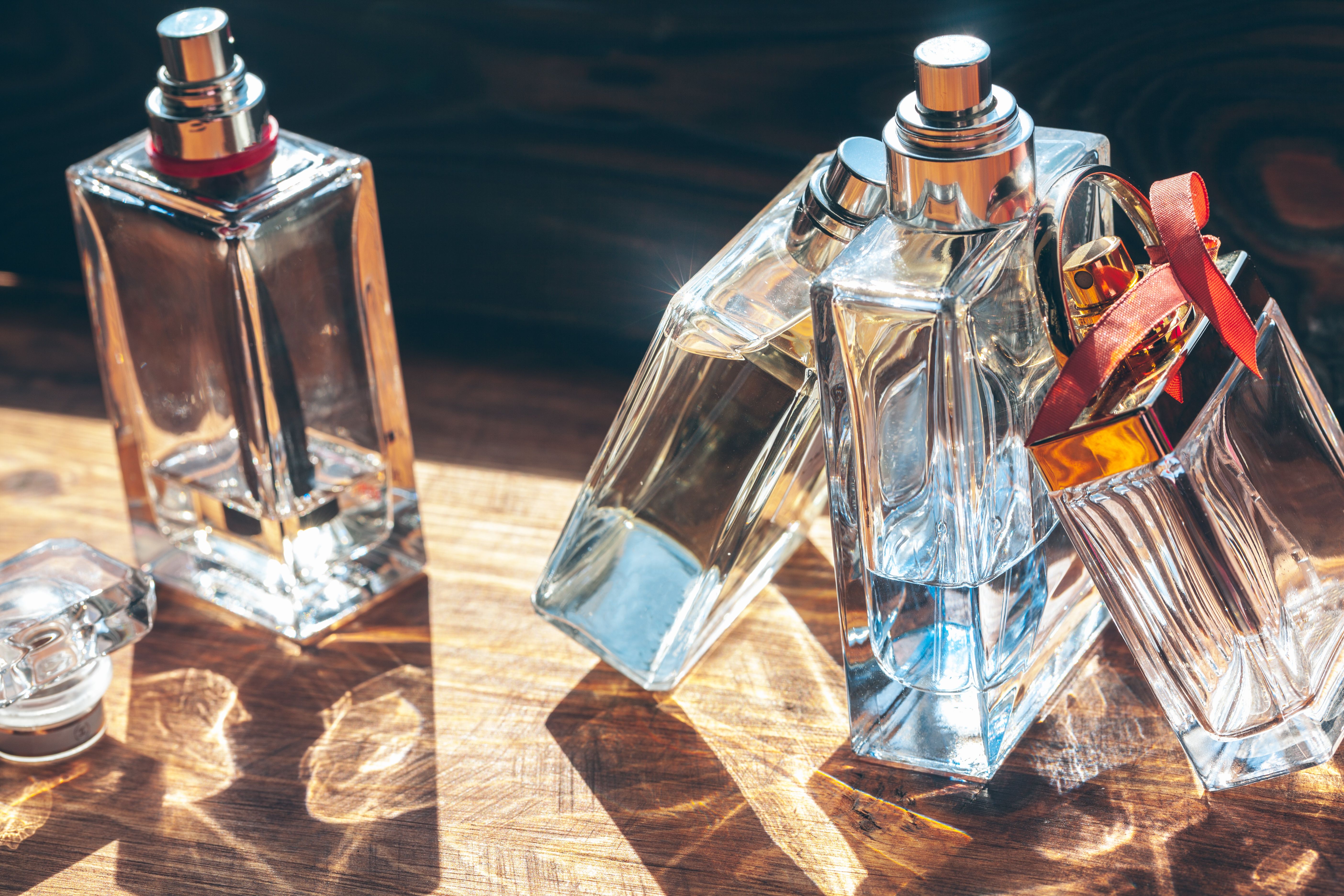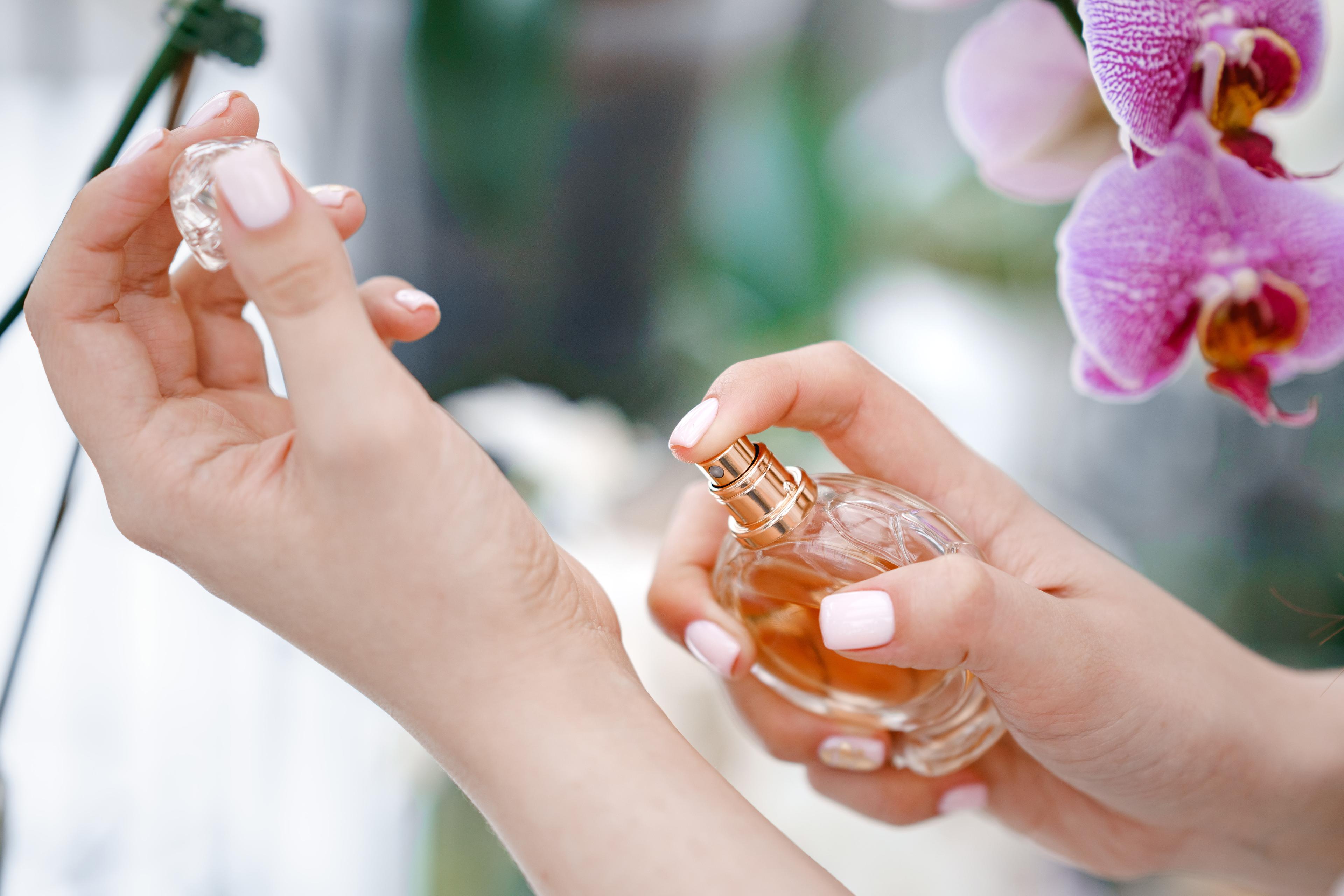
Debunking Perfume Myths
Let Chez Pierre Unveil the Truth Behind Common Perfume Misconceptions
Perfume has been a part of human culture for centuries, yet many myths and misconceptions surround this aromatic art. From strange questions like "Can you get high off perfume" to understanding why a scent smells different on each person, it's time to clear the air.
Let's get into facts about perfume and bust some common myths while at it.
Perfume Myth Questions

Some People May Get a Headache From Smelling Perfume
Can You Get High Off Perfume?
One of the more bizarre questions is, "Can you get high off perfume?" The short answer is no. Perfumes contain various ingredients, including alcohol and essential oils, but none of these components are psychoactive.
While inhaling perfume might give you a headache or make you feel dizzy due to its strong scent and alcohol content, it won't get you high. It's important to use perfumes as intended – spritzed lightly on your skin – rather than inhaling them excessively.
Does Cologne Smell Different on Everyone?
Yes, it does! A fascinating aspect of fragrance is that cologne smells different on everyone. This is due to our unique body chemistry. Factors like skin type, diet, hormones, and even the medications you take can influence how a perfume smells on you.
When you apply a fragrance, it interacts with your skin’s natural oils and pH balance, creating a unique scent. This is why a perfume that smells divine on your friend might not have the same effect on you.
What Happens If You Spray Too Much Perfume?
We’ve all encountered someone who has gone a little overboard with their fragrance. So, what happens if you spray too much perfume?
Apart from potentially overwhelming those around you, over spraying can cause some issues.
- First, the alcohol in perfumes can dry out your skin, leading to irritation.
- Secondly, wearing too much perfume can distort the scent, as our noses get overwhelmed by the intensity, making it harder to appreciate the fragrance’s true scent.
It’s always best to apply perfume sparingly – a couple of spritzes are usually enough to leave a pleasant trail without overpowering.
Why Do Perfumes Smell Different on Everyone?
Another question is, why does perfume smell different on everyone? This is closely related to how our body chemistry affects scent. Your skin’s oil production, diet, and environmental factors can alter how a fragrance develops and lingers.
Additionally, what you eat can affect your body odor, which in turn affects how a perfume smells on you. For instance, a diet high in spicy foods can lead to a slightly different scent profile compared to a diet rich in fruits and vegetables.
Common Perfume Myths
Myth 1: Perfume lasts forever.
- Perfume has a shelf life. Over time, exposure to light, heat, and air can cause it to deteriorate. To prolong its life, store your perfume in a cool, dark place.
Myth 2: Rubbing your wrists together after applying perfume makes it last longer.
- Rubbing your wrists together can actually break down the fragrance molecules, causing the scent to dissipate faster. Instead, let it dry naturally on your skin.
Myth 3: More expensive perfumes are always better
- While high-end perfumes often use rare and high-quality ingredients, this doesn’t necessarily mean they are better for everyone. Perfume preference is highly subjective, and sometimes more affordable options can be just as pleasing.
Myth 4: Spraying perfume on your clothes is a good idea.
- Perfume is designed to interact with your skin, not fabric. Spraying it on your clothes can stain them and alter the scent. Apply perfume to pulse points on your skin for the best effect.
Exploring Perfume Facts
Understanding perfume facts can enhance your fragrance experience and help you choose scents that work best for you. For example, knowing what perfumes are made up of top, middle, and base notes can give you insight into how a scent will develop over time.
The top notes are what you smell immediately after applying the perfume, the middle notes develop after the top notes fade, and the base notes are the long-lasting scents that linger on your skin.
The Science Behind Perfume
Perfume creation is a mix of art and science. Perfume makers, or perfumers, use a variety of natural and synthetic ingredients to craft unique scents. These ingredients are carefully measured and mixed to achieve a harmonious blend.
The concentration of the ingredients determines the sillage and longevity of the fragrance. For instance, Eau de Parfum has a higher concentration of fragrance oils than Eau de Toilette, making it more potent and longer-lasting.
The Role of Alcohol in Perfume

Take Caution When Spraying Perfume on Sensitive Skin
Alcohol is a crucial ingredient in most perfumes. It serves as a solvent, helping dissolve the fragrance oils and ensure they blend well. Alcohol also aids in the evaporation process, allowing the scent to disperse and fill the air when you apply the perfume. However, too much alcohol can dry out your skin, so it's essential to find a balance that works for you.
Personalizing Your Scent
Finding a signature scent can be a deeply personal journey. Consider your lifestyle, preferences, and the impression you want to make.
Testing different perfumes on your skin and giving them time to develop can help you find a fragrance that truly resonates with you. Remember, the best perfume makes you feel confident.
Perfume Etiquette
When wearing perfume, it's important to be mindful of those around you.
Etiquette tips to keep in mind:
- Moderation is key and that means a couple of spritzes are usually enough. Over-applying can be overwhelming to others.
- Consider the setting; for example, light, fresh scents are generally more appropriate for work or school, while richer, more complex fragrances can be saved for evenings or special occasions.
- Be aware of allergies because some people are sensitive to strong scents, so it's always considerate to avoid wearing heavy perfumes in close or shared spaces.
Fun Facts About Perfume That You Need to Know
To lighten things up, here are some fun facts about perfume that might surprise you:
Ancient Origins
The art of perfume-making dates back to ancient civilizations, with the Egyptians being among the first to incorporate fragrances into their daily lives and rituals.
Perfume and Love
Historically, perfumes were often used in love potions to attract romantic partners. Cleopatra is said to have used rose-scented oils to seduce Mark Antony.
A Scented Status Symbol
In the 17th century, King Louis XIV of France was known as the "Perfume King" because he demanded a different fragrance and even had the fountains in his palace filled with perfume.
The Nose Knows
Professional perfumers are often referred to as "noses" because of their exceptional ability to identify and create complex scents.
A Costly Fragrance
The world’s most expensive perfume, Shumukh, is valued at over $1 million. It comes in a bottle adorned with diamonds and other precious gems.
Takeaways
Perfume is more than just a pleasant aroma; it's a form of self-expression and a way to create lasting memories. By debunking common myths about perfume and understanding the facts about perfume, you can make more informed choices and truly enjoy fragrance.
Even if you’re new to perfumes or an enthusiast, the science and history behind these scents can enhance your appreciation and enjoyment of them.
So next time you spritz on your favorite scent, remember these insights and wear your perfume with confidence.